An ACT, mindfulness-training approach using the Radio Critic naming exercise
The problem: why thoughts like “I am not smart enough” glue themselves to you
“I’m not smart enough” feels like a fact because it’s self-criticism plus high stakes. Research links self-criticism with worse mental-health outcomes and shows that directly targeting it in therapy shows better results.
In Acceptance & Commitment Therapy (ACT), we don’t argue with the sentence. We change our relationship to it with a skill called cognitive defusion, which means treating thoughts as words and sounds rather than commands. In experiments, brief defusion exercises can reduce the believability and emotional sting of sticky self-talk.
Neuroscience explains it with this: putting feelings/thoughts into words engages regulatory prefrontal systems and dampens amygdala activation, which causes less alarm and more choice for the person.
The Radio Critic Exercise:
(Adapted from ACT’s “Radio Doom & Gloom” metaphor and credit is to ACT trainers who use radio/announcer imagery for defusion.)
In this exercise, you’ll consider your mind as a radio and you name the channel your mind is playing and treat the lines (thoughts) as audio, not orders.
The 60–90 second drill
1. Tune in (on purpose)
Whisper or write: “Now tuning to Not-Enough radio channel”
This names the source, and it’s a station your mind can play, not you.
2. Announce the track
“Now playing: I’m not smart enough”
(You’re turning that thought, which you considered “truth,” into text/audio you can notice. That’s defusion
3. Slide the volume
Picture a volume slider dropping from 10 → 3, or briefly lower your phone/system volume as a body cue. You’re not silencing, you’re just letting it play quieter in the background.
4. Cut to your program (2-minute values move)
Choose one micro-action that reflects what matters to you right now:
Learning: list two questions to ask; open one tab to a reliable resource.
Reliability: add a clear opener line to the draft; rename the file cleanly.
Kindness (to you): write, “Work in progress ≠ , unintelligent.” Then continue.
That’s mindfulness training via ACT: notice → name → turn down → move.
(Why it helps: Labeling words as words reduces their grip and calms the alarm system, so action gets easier.
Use it where the Critic is loudest.
Before you send the email:
“Not-Enough FM. Now playing: *This sentence will expose me.* → volume 3 → paste a 10-word opener → send to one reviewer.”
While studying/learning something new:
“Not-Enough FM. Track: I can’t grasp this → volume 3 → write one question you’ll ask in office hours.”
During a code/design review:
“Not-Enough FM. Track: They’ll see I’m faking it → volume 3 → add a ‘Known limitations’ note, then submit.”
Creative work:
“Not-Enough FM. Track: This draft proves I’m mediocre → volume 3 → ship a good-enough pass and log one improvement for the next iteration.”
Why Radio Critic is still “real mindfulness”
Mindfulness here isn’t emptying your mind; it’s flexible attention under noise. ACT targets that flexibility, and across dozens of studies, increases in psychological flexibility track with symptom improvement
Pro tip: Keep the same station name for a week (e.g., *Not-Enough FM*). Familiarity speeds the unhooking—your brain learns “oh, that channel again.”
7-day mini-challenge (skills, not streaks)
Each day, catch one “not smart enough” moment.
Run Radio Critic (tune → announce → volume → 2-minute values move).
Note—0 to 10—how believable the line felt after the drill.
On Day 7, list what actually moved forward despite the soundtrack.
References
[1] Werner et al. *Self-criticism and psychotherapy outcome: systematic review & meta-analysis.* **Clinical Psychology Review** (2019) https://www.sciencedirect.com/science/article/pii/S0272735819303204
[2] Masuda et al. *Cognitive defusion reduces believability of negative self-talk.* **Behaviour Research and Therapy** (2004). PDF: https://contextualscience.org/sites/default/files/305%20Defusion%20word%20repetition%20BRAT%202004.pdf
[3] Masuda et al. *Defusion vs. distraction: reductions in discomfort & believability.* **Behaviour Research and Therapy** (2009). https://www.sciencedirect.com/science/article/abs/pii/S0005791609000536
[4] Lieberman et al. *Putting feelings into words reduces amygdala response (fMRI).* **Psychological Science** (2007). PDF: https://sanlab.psych.ucla.edu/wp-content/uploads/sites/31/2015/05/Lieberman\_AL-2007.pdf
[5] Lieberman. *Affect labeling as implicit emotion regulation (review).* **Emotion Review** (2018). https://journals.sagepub.com/doi/pdf/10.1177/1754073917742706
[6] Jaeger, S. *The ACT “Doom & Gloom” Radio Metaphor (defusion primer).* https://www.sonia-jaeger.com/en/the-act-radio-doom-gloom-metaphor/
[7] Russ Harris. *Radio Doom & Gloom* (video). https://www.youtube.com/watch?v=Bu2k0EGXAVo
[8] Harris, R. *Cautions with “story-naming”, “thanking your mind,” & similar defusion methods.* (Clinical note). https://www.actmindfully.com.au/upimages/Cautions\_WIth\_Story\_Naming\_Mind\_Thanking\_and\_Others.pdf
[9] Monestès et al. *Psychological flexibility mechanisms in ACT: systematic/meta-analytic review.* **Clinical Psychology Review** (2024). https://www.sciencedirect.com/science/article/pii/S0272735824000539


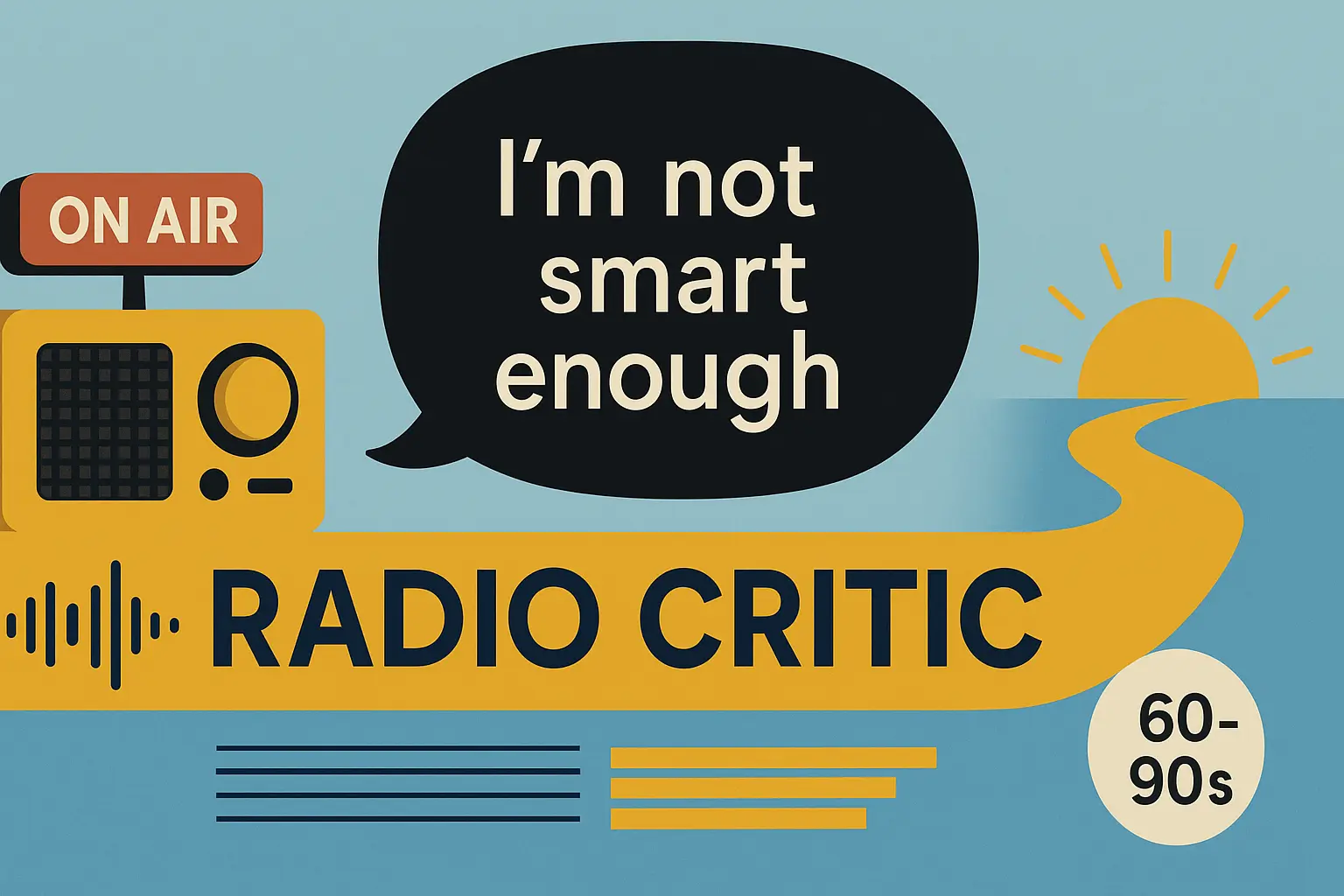

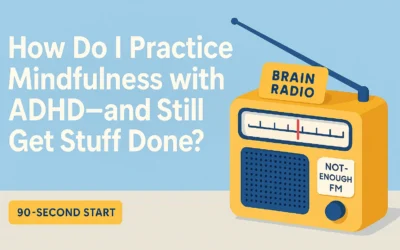
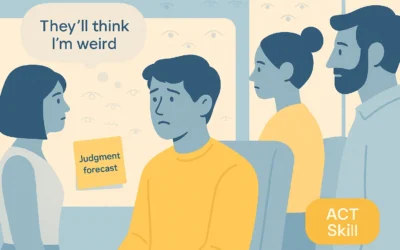
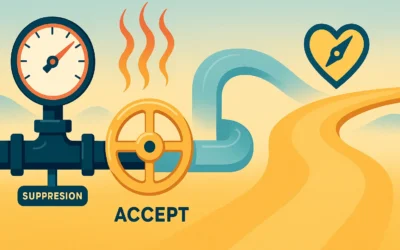
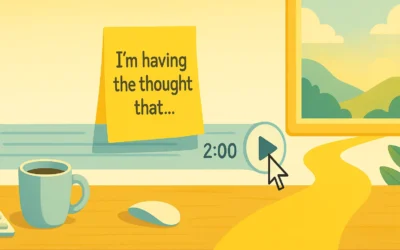
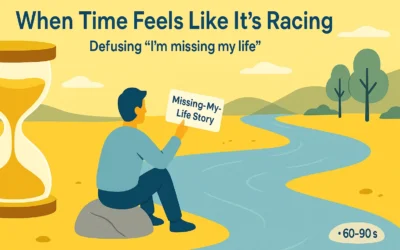
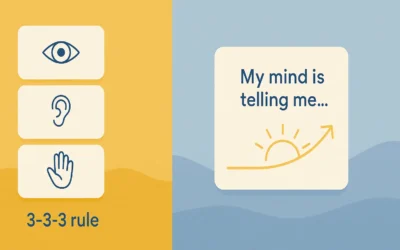

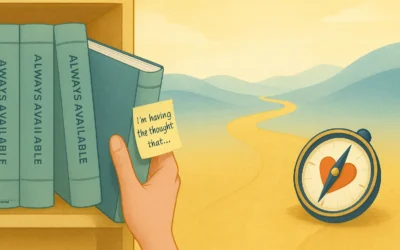
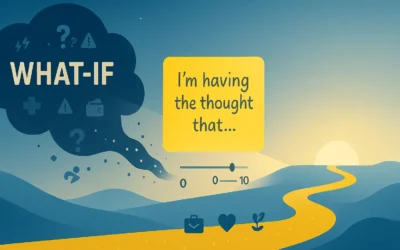
0 Comments